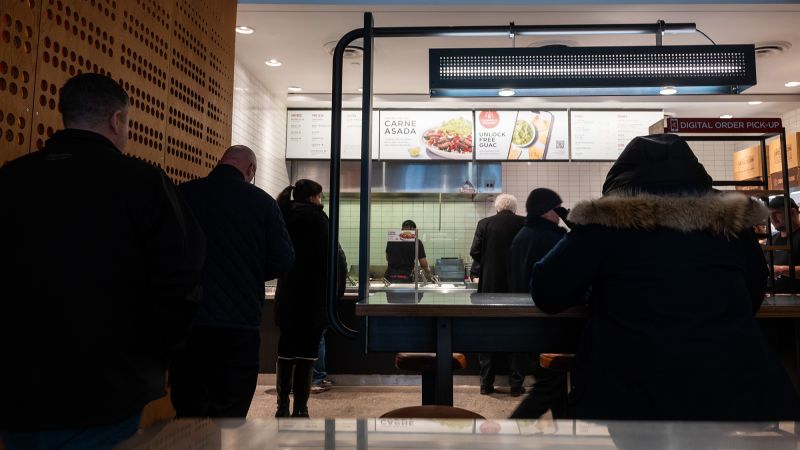America’s largest corporations have expressed growing concerns regarding the trade policies implemented by President Donald Trump, spotlighting how these erratic measures are adversely affecting consumer behavior and company operations alike. Major players in various industries, including PepsiCo, American Airlines, Chipotle, IBM, and Procter & Gamble, indicated that the ongoing trade wars and tariffs are dissuading consumers from purchasing goods and services, including airline tickets and food, consequently impacting overall economic stability and deterring businesses from making long-term investments.
In the latest quarterly earnings updates, these companies provided their initial evaluations of how Trump’s tariffs are affecting the market dynamics. Executives, including PepsiCo’s CEO Ramon Laguarta, have noted that the increasing uncertainty surrounding global trade developments is escalating supply chain costs. Such factors have led to a revision of profit predictions downwards, revealing the challenging landscape these firms find themselves in.
The Trump administration’s complicated tariff policies particularly target imports from China, leading to a reciprocal response from other nations that have implemented their own tariffs. This has resulted in an aggressive trade stance, with the U.S. imposing a universal 10% tariff on most goods entering the country, and staggering tariffs reaching 145% specifically aimed at China. The fallout from these policies introduces an environment of unpredictability and economic strain for many American companies.
Additionally, the underlying economic slowdown is exacerbating challenges for America’s leading corporations, creating a ‘nightmare’ scenario for firms struggling to adapt to rapid changes in trade policies. Though companies have refrained from directly criticizing the President, they made it clear that the burden of tariffs is being felt heavily across the board.
One notable example is Chipotle, which reported a decline in sales at existing stores for the first time since the onset of the COVID-19 pandemic. The restaurant chain attributed increased costs of imported ingredients—such as Australian beef and Peruvian avocados—to tariffs. CEO Scott Boatwright revealed that economic apprehensions significantly influenced customers’ dining habits, leading to fewer visits to restaurants.
Similarly, Procter & Gamble, the manufacturing giant of household staples such as Pampers and Tide, has lowered its sales projections. The company announced that tariffs are likely to drive prices upward for various consumer products, indicating an inflationary trend. CEO Jon Moeller detailed that some prices would begin to rise from July, with plans to modify product formulas in response to tariff impacts, aiming to mitigate the price hikes.
The aviation sector is also feeling the repercussions of tariffs and economic pressures. Major airlines, including American Airlines, Delta, Southwest, and Alaska Air, have retracted their financial forecasts for the year due to economic uncertainty. American Airlines’ vice chair Steve Johnson highlighted how lower-income travelers, who are most sensitive to price changes, are reducing their flight frequency, thus adversely impacting the industry.
Moreover, the tourism sector has not been spared; reports show that businesses relying on hospitality and tourism have experienced a noticeable decline in patronage, particularly from international travelers. The Federal Reserve noted a significant dip in Canadian tourists owing partly to Trump’s policies, and concerns about diminishing visitation from Europe and China were raised as well.
The stock market has reacted negatively to the turbulence generated by tariffs, with the Dow Jones Industrial Average witnessing its worst performance in April since the Great Depression, thus slowing down overall economic growth. Economists suggest that the risk of a recession looms large, indicating a worrying probability of 50% to 70% due to the consequences of current trade strategies.
Prominent business figures are increasingly vocal in their critique of Trump’s trade policies. Ken Griffin, CEO of Citadel and a known supporter of the president, articulated concerns about the erosion of America’s brand on the global stage, stating that the nation is losing its former aspirational status. He underscored the need for the U.S. to recover its standing as a leading influence, illustrating the broader implications of the current trade situation on the country’s reputation worldwide.
In summary, the implications of Trump’s tariffs and trade policies are firmly reverberating across multiple sectors, negatively impacting consumer behavior, company performance, and global economic perceptions of the United States. The growing consensus among business leaders and economists hints at an urgent need for policy reassessment to foster a stable economic environment conducive to growth and investment.



